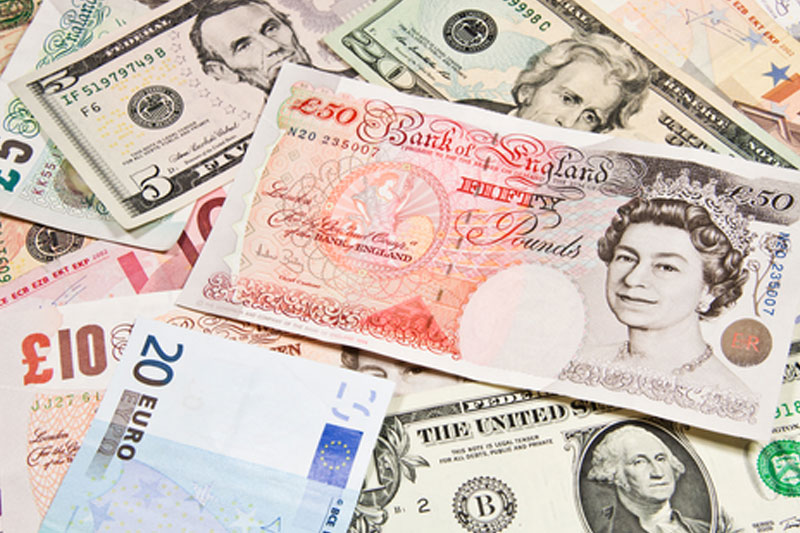Investing.com - The pound remained lower against the U.S. dollar on Tuesday, after the release of downbeat U.S. retail sales data, as investors remained cautious ahead of an upcoming U.K. jobs report and the Bank of England’s quarterly inflation report due on Wednesday.
GBP/USD hit 1.6826 during U.S. morning trade, the pair's lowest since May 2; the pair subsequently consolidated at 1.6843, slipping 0.15%.
Cable was likely to find support at 1.6792, the low of April 29 and resistance at 1.6938, the high of May 9.
The U.S. Commerce Department reported that retail sales rose just 0.1% last month, missing expectations for a 0.4% increase. Retail sales for March were revised up to a 1.5% gain from a previously reported increase of 1.2%.
Rising retail sales over time correlate with stronger economic growth, while weaker sales signal a declining economy.
Core retail sales, which exclude automobile sales, were flat in April, disappointing forecasts for a 0.6% increase. Core sales in March were revised up to a rise of 1% from a previously reported increase of 0.7%.
Meanwhile, the pound remained supported amid expectations that the BoE would upgrade its forecast for growth when it presents its quarterly inflation report on Wednesday.
The latest U.K. jobs report, set to be released on Wednesday, is expected to show a another decline in the unemployment rate to a more than five year low of 6.8% in the three months to March, while wage growth is expected to rise again.
A strong reading would reinforce expectations that the BoE will raise interest rates ahead of other central banks and send the pound rising towards recent almost five year peaks against the dollar.
Sterling was higher against the euro, with EUR/GBP edging down 0.14% to 0.8144.
Demand for the single currency remained vulnerable after the Wall Street Journal reported that Germany’s Bundesbank would back monetary easing measures by the European Central Bank if they were needed to keep persistently low levels of inflation from becoming entrenched in the euro zone.
Separately, data showed that German economic sentiment deteriorated to a 16-month low in May. The ZEW Centre for Economic Research reported that its index of German economic sentiment dropped to 33.1 this month from 43.2 in April. Analysts had expected a reading of 41.0.
The current conditions index improved to 62.1 from 59.5 in April, ahead of expectations of 60.5.
